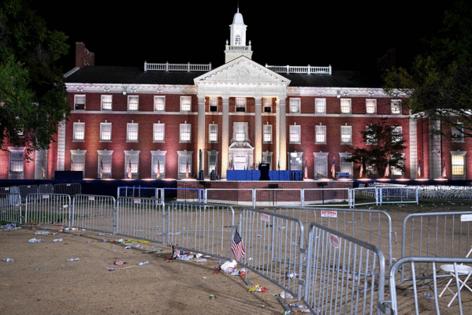Learning to make a difference between elections
Published in Political News
For most Americans this election has brought exhaustion, divisiveness and, for many, fear and deep pain. After the election Tom Nichols wrote in The Atlantic: “Americans must stay engaged and make their voices heard at every turn.” And Liz Cheney tweeted, “Citizens across this country … must now be the guardrails of democracy.”
But most Americans still wonder how, and even if, they can make a difference between elections. What are the options? 1) Protesting? Important, but usually not the long game. 2) Signing email form letters, which only 3 percent of Congressional staffers say is highly effective? Just gestures. 3) Taking a two-year nap until the next election? Sadly, the preferred route for many. But few Americans know about option 4) transformational advocacy, which helps you change an issue and changes you in the process.
If transformational advocacy can have an impact on issues we care about and on our own souls, why do so few of us engage?
Let’s be honest — almost everyone shies away from advocacy as a way to make a difference. We donate to climate change organizations, but we don’t meet with a member of Congress or write a letter to the editor. We donate to groups working to end gun violence, anti-hunger organizations, groups dedicated to racial justice and many others, but we don’t become advocates on those issues beyond signing an online petition or going to an occasional rally. Why? Because most of us see advocacy as too hard or too frustrating, too complicated or too partisan, too dirty or too time-consuming, too ineffective or too costly.
But what if that’s all wrong? What if deep engagement dissolves discouragement and can actually bring joy? What if you can become an advocate for a cause you care about and feel fulfilled, not frustrated? And what if engaging as an advocate is essential to protecting our democracy?
It is essential, but we’re constantly receiving the wrong signals from people who should know better.
In a 2023 Salon interview, a University of Pennsylvania political science professor said, “Few people can meaningfully participate in national politics beyond voting (this is just as true of political scientists as it is of regular folks).” Really? We should just hang up our hats? No thank you!
“People want to be a part of something bigger than themselves,” said Bill O’Keefe, executive vice president of mission, mobilization and advocacy at Catholic Relief Services. With that realization, in 2019 CRS launched a program to develop chapters that would deeply engage their members in transformational advocacy and fundraising. CRS wanted to support their members in doing much more than just voting and signing petitions.
During President-elect Donald Trump’s first term, chapter members began working to pass the Global Child Thrive Act, a bill that would require the administration to integrate early childhood development techniques into all child-focused international aid programs — activities like reading and singing to children, playing with colorful objects and providing better nutrition. The simple things we do to help our own children and grandchildren thrive would make a world of difference for children globally, especially those living in refugee camps and in other difficult circumstances.
At the end of a grueling campaign, one CRS volunteer shared how she felt when her House member, Rep. Brian Fitzpatrick (R-Pa.), spoke during passage of the bill in 2020:
“When (we met with the congressman in 2019 to ask him to introduce the bill), I was a nervous wreck. It was my first time truly advocating ... and I wanted to get it right ... (but) seeing him speak today (on the House floor) and knowing that he actually listened, learned and worked for something that meant so much to the people he represents has given me renewed hope in the future of our government. I feel privileged to be a part of this experience.”
The Global Child Thrive Act passed with veto-proof majorities in the House and Senate as part of the much larger National Defense Authorization Act. The bill was vetoed by Trump, but the veto was overridden by Congress, and the bill became law on Jan. 1, 2021.
Most Americans still wonder how, and even if, they can make a difference between elections. It’s time for nonprofits to offer transformational advocacy and help us save our democracy.
____
Daley-Harris is the author of “ Reclaiming Our Democracy: Every Citizen’s Guide to Transformational Advocacy” and the founder of RESULTS and Civic Courage.
_____
©2024 The Fulcrum. Visit at thefulcrum.us. Distributed by Tribune Content Agency, LLC.




























































Comments